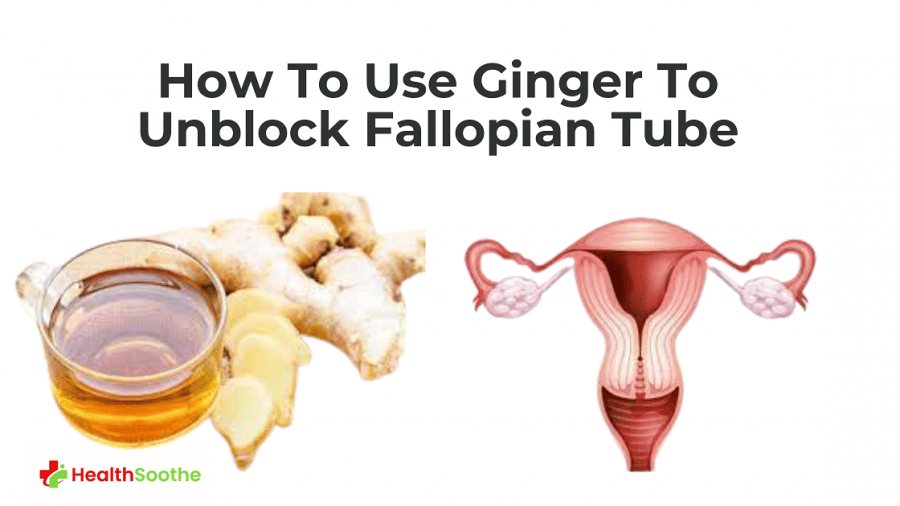Before delving into the idea of utilizing ginger to unblock fallopian tubes, let us first define the term, its causes, and the consequences for female fertility (ability to get pregnant).
The egg cannot meet the sperm because the fallopian tubes are blocked. This can be caused by any of the following :
- Endometriosis
- Pelvic inflammatory disease (PID)
- Scar tissue from previous surgery, such as ectopic pregnancy surgery
- Gonorrhoea or Chlamydia
- Salpingitis (hydrosalpinx)
- Uterine infection caused by an abortion or miscarriage
- Ruptured appendix
- History of abdominal surgery
- Previous ectopic pregnancy
- Prior surgery involving the fallopian tubes.
Read Also: Is Pap Good For Ulcer Patients? | Answered
Infertility is often caused by blocked fallopian tubes. Fertilization occurs when sperm and egg meet in the fallopian tube.
A clogged tube may prevent them from combining to form a baby. Pregnancy will be impossible if both tubes are completely obstructed.
You may be able to get pregnant if your fallopian tubes are partly closed. This increases the likelihood of a tubal pregnancy, often known as an ectopic pregnancy.
There are several treatment regimens for clogged tubes, including the use of medications, IVF, and tubal operations.
To unclog blocked fallopian tubes, people employ a variety of herbal therapies. Herbs such as ginger, fragrance leaf, bara, pap water bitter leaf, and garlic, among others, have been proposed for the treatment of obstructed fallopian tubes, but for the sake of this study, let us concentrate on ginger.
Ginger is a flowering plant whose rhizome, ginger root, or ginger is used as a spice and traditional medicine.
The issue now is, how can you use ginger to unclog a fallopian tube? To find out the solution to this question, continue reading.
How Do You Use Ginger To Unblock Fallopian Tube?
Ginger has been touted as a fertility enhancer and a means of clearing clogged tubes. It has anti-inflammatory properties as well as is an ovulation stimulant.
A cup of ginger, garlic, and cinnamon, with or without cinnamon, is said to help unclog fallopian tubes and boost a woman's chances of becoming pregnant.
When drinking it, you should also add ginger with cinnamon and turmeric to promote blood circulation. There is, however, little scientific data to suggest that ginger helps open obstructed fallopian tubes.
It's all based on assumptions rather than facts. Taking ginger is safe and healthful in any case, but don't expect it to clear or open your clogged tubes.
If your tubes are clogged or you're having trouble becoming pregnant, you and your partner should visit a gynaecologist for an examination, tests, and treatment.
The fact that your tubes are clogged does not rule out the possibility of having a kid.
Related: Health Benefits of Ginger and Garlic
In Conclusion
However, there is little scientific data to support ginger's ability to unclog obstructed fallopian tubes. It's entirely speculative and unsubstantiated.
Taking ginger is safe and healthful in any case, but don't expect it to clear or open up your clogged tubes.
If you have blocked tubes or are struggling with infertility and have tried using ginger or other suggested treatments, but the issue persists, you and your spouse should consult a gynaecologist for assessment, investigations, and correct therapy.
The fact that you have clogged tubes does not mean you will never be able to have a kid; it is just an issue of having correct therapy.


